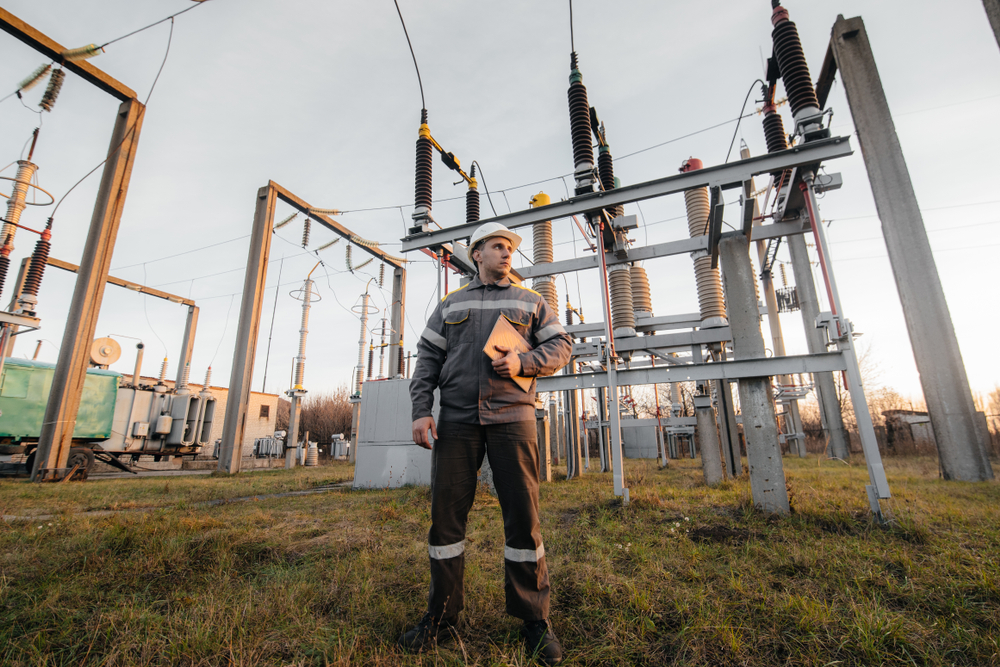Challenging economic conditions often force electricity companies to make difficult decisions about lifting prices, slashing costs or exiting their business. Rising energy costs can significantly affect the bottom line of retailers, especially emerging brands with smaller customer bases compared to the big three providers. This Canstar Blue article explores what happens to customers when their energy provider permanently closes.
On this page:
- How likely is it that my energy company will shut down?
- What happens if my energy company ceases operation?
- Will I lose power if my energy company goes out of business?
- What happens when I don’t have an energy company?
- What is the retailer of last resort?
- Do I still have to pay my bill if my energy company shuts down?
- Can I trust smaller energy providers to stay open?
- Should I switch to a bigger energy company to avoid the hassle?
- What can I do now to put myself in the best position?
How likely is it that my energy company will shut down?
Overall, states and territories within the National Electricity Market, or NEM (New South Wales, Victoria, Queensland, South Australia, the Australian Capital Territory and Tasmania), have enjoyed substantial growth in energy retail competition. Basically, more power companies are being established with each one seemingly offering cheaper rates and a more ‘modern’ customer experience. And while the 35+ electricity retailers in Australia may seem to be more than necessary, it pales in comparison to places like the UK where provider numbers have soared to 70+ at times.
Aussie bill-payers can benefit from this intense power price competition, and the chances of your power provider going bankrupt are generally low. But with the variable nature of the wholesale electricity market, it’s not inconceivable that some of smaller competitors might struggle in uncertain times. Several smaller providers closed their doors in the volatile 2022-2023 period, although the market has fortunately calmed down in 2024.
What happens if my energy company ceases operation?
In the event that your energy company goes out of business, another provider is likely to acquire its customer accounts and rebrand your bill. However, in the event that your account is not picked up by a new provider, you will be transferred to the local ‘retailer of last resort’. Either way, insolvency shouldn’t create too many headaches for consumers.
Will I lose power if my energy company goes out of business?
You won’t be left without power if your energy provider shuts down. Your energy supply has surprisingly little to do with your energy retailer, as your energy distributor is responsible for delivering electricity and gas to your home. Although your retailer could stop supplying energy due to unpaid bills, if your energy company goes under you will be contacted and advised what to do. In some cases, your provider may be purchased by a competitor and customers will be transferred to that retailer.
What happens when I don’t have an energy company?
Unless you are disconnected from the grid, a company will always handle your customer account. If your retailer goes under without plans in place, you will be moved to a ‘retailer of last resort’. Depending on where you are, this will most likely be one of the big three: Origin, AGL or EnergyAustralia. You will be contacted by that retailer to confirm your details and be offered the option to stay with that provider or choose a different one.
What is the retailer of last resort?
Energy regulators are good at planning for all eventualities, including when smaller power companies go out of business. If this should happen each area has a dedicated retailer of last resort to take over accounts and ensure customers have a company to continue servicing and energy billing. Retailers of last resort are one of the big three energy retailers in Australia – AGL, Origin or EnergyAustralia.
There is no risk in switching to a smaller energy company because even if it goes out of business, you’ll still be taken care of.
Do I still have to pay my bill if my energy company shuts down?
In most cases, your bill will be settled with your current provider even before your typical bill due date. Your next bill will come from the next energy company you intend to go with.
Can I trust smaller energy providers to stay open?
The ‘quality’ or ‘reliability’ of your power has little to do with what energy retailer you may choose. The element of trust comes into play when considering how a company might conduct its service, and whether or not it uses questionable sales tactics to sign you up. The only reason you might be cut off from electricity is in the event of a blackout, power line maintenance or energy account default. In this case it is still very hard to involuntarily disconnect household power.
Should I switch to a bigger energy company to avoid the hassle?
There is no hard answer to what the best plan of action is for individual households, given their differing circumstances. However, if you are on a plan from a smaller company that provides good service and consistently offers low rates, there is probably no good reason to switch unless it is absolutely necessary.
What can I do now to put myself in the best position?
Business as usual should mean the same for consumers. Make sure you are on an energy plan with comparatively low rates in your area to minimise the chance of bill shock.
Utility bill stress is the last thing anyone wants, so check out the table below to see how your energy rates stack up against other local plans.
Energy prices compared
Switching to one of the smaller players is sometimes necessary to receive the cheapest energy deal. Check out some of the best deals from Canstar Blue’s database below.
Here are some of the cheapest published deals from the retailers on our database that include a link to the retailer’s website for further details. These are products from referral partners†. These costs are based on the Ausgrid network in Sydney but prices may vary depending on your circumstances. This comparison assumes general energy usage of 3900kWh/year for a residential customer on a single rate tariff. Please use our comparison tool for a specific comparison in your area. Our database may not cover all deals in your area. As always, check all details of any plan directly with the retailer before making a purchase decision.
Here are some of the cheapest published deals from the retailers on our database that include a link to the retailer’s website for further details. These are products from referral partners†. These costs are based on the Citipower network in Melbourne but prices may vary depending on your circumstances. This comparison assumes general energy usage of 4000kWh/year for a residential customer on a single rate tariff. Please use our comparison tool for a specific comparison in your area. Our database may not cover all deals in your area. As always, check all details of any plan directly with the retailer before making a purchase decision.
Here are some of the cheapest published deals from the retailers on our database that include a link to the retailer’s website for further details. These are products from referral partners†. These costs are based on the Energex network in Brisbane but prices may vary depending on your circumstances. This comparison assumes general energy usage of 4600kWh/year for a residential customer on a single rate tariff. Please use our comparison tool for a specific comparison in your area. Our database may not cover all deals in your area. As always, check all details of any plan directly with the retailer before making a purchase decision.
Here are some of the cheapest published deals from the retailers on our database that include a link to the retailer’s website for further details. These are products from referral partners†. These costs are based on the SA Power network in Adelaide but prices may vary depending on your circumstances. This comparison assumes general energy usage of 4000kWh/year for a residential customer on a single rate tariff. Please use our comparison tool for a specific comparison in your area. Our database may not cover all deals in your area. As always, check all details of any plan directly with the retailer before making a purchase decision.
Image credits: Andrii Medvednikov/shutterstock.com



Share this article